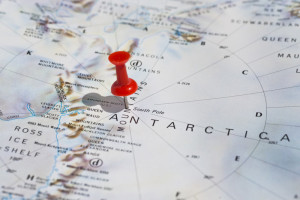 Practical Goal Setting for 2016, Part 5
Practical Goal Setting for 2016, Part 5
Step 3: Prepare for the Journey and Execute!
New Year’s is the time when most people set goals. . . and when most people stop pursuing goals. Some of us make it a few days, or weeks, while some people have given up before they’ve sobered up!
But, a key to achieving goals, and ultimately, lifelong success, is to give yourself a break. When an aircraft pilot is off course, they don’t just turn around and go home. They take a minute to figure out where they are at, and then correct their course. Sometimes they may even have to land, or take a few hours or days before they take off again, but they ultimately continue the journey.
If you find yourself off course, even if it’s the second or third day, or week, reset, figure out the problem, then continue moving forward.
Success in goal achievement is about preparation. If we follow our Amundsen leadership principles, after you figure out what you’ve wanted (and established why you want it), and figured out the jobs that have to be done (i.e. the benchmarks), and set up your accountability measures, then make sure you prepare for the journey.
Do you have everything in place to move forward on the goal? Do you have the resources you need? Do you have the money (or at least a plan for financing the goal if necessary); do you have the equipment you need? If you need to delay a few days before you get started, that’s fine, as long as you have a start-date in mind, and you’re using your time prior to that date, to do the prep. In some cases, the goal may need to be delayed due to other more pressing goals. That’s okay too, just be realistic with your timelines.
The devil truly is in the details. If you’re planning on starting a new workout program, do your homework ahead of time to determine the best plan for you. If you’ve ordered a DVD series of some sort, watch the intro and the first few workouts, get their timelines down and be sure you have everything you need before you start. If you’ve hired a personal trainer – well, first you should have interviewed a few, and then determined when you will meet and that it will fit into your schedule. Too often people move forward without a plan in place, and it only leads to frustration as they try to do too much.
The latter part of last year, I was in the middle of trying to finish another book, but I was also pursuing some doctorate coursework, along with a few other goals. I had to put those aside in order to finish the book. It took a couple of months, so understand that life and other priorities will sometimes interfere. Just like a pilot that encounters some unexpected weather and has to put down for a while, you may have to stop for similar (metaphorical) delays. If that happens, learn from the delay. Why did it occur? Could it have been avoided? Could it have been lessened? In some cases, it’s just the way life works. In others, you’ll find things you could have done to reduce or eliminate the delay or issue.
In the case of Amundsen and Scott, and their race to the South Pole, it was Amundsen’s team that were better prepared – they paid attention to details. They were realistic about their timelines, their existing capabilities and the toll the trip would take on everyone. They adjusted; they used proven processes and equipment; they prepared and they gave themselves some flexibility in their timelines. Do the same for yourself.
Remember to track your progress and if you get off course, assess what went wrong, fix it, and then get back on track. The key to absolutely achieving every goal is persistence. Just keep at it.
